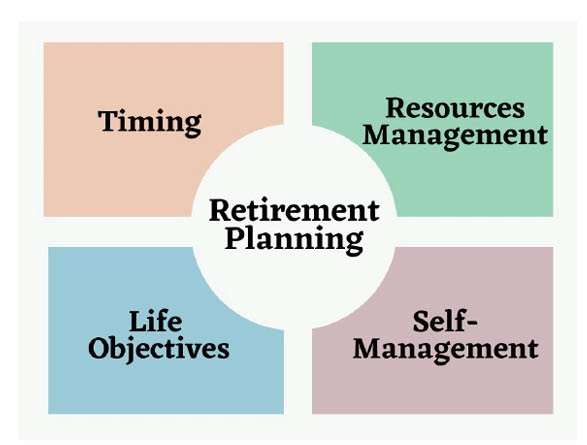“Often when you think you’re at the end of something, you’re (actually) at the beginning of something else.”
– Fred Rogers
Human beings pass through many transitions in a lifetime. A life transition is a change that partially impacts or completely alters our current state. Some transitions are subtle while others are significant. Similarly, some transitions are fleeting whilst others seem incessant. Furthermore, the occurrence of some transitions is determined and premeditated by us and fully within our discretionary control. Others are forced upon us and may or may not be under our control. Regardless, we have a choice on how we can plan towards their expected occurrence as well as what we do in the event of their unplanned transpirations.
We are always at some stage and phase in life. At some point we were in our mothers’ wombs where we had next to no choice. As little as five-year olds, we were taken to primary schools where we had narrow freedoms of choice. By our early teens, we were in secondary school, making choices about whether to take science, arts, or technical subjects. In about the same age band, we got admissions into universities where we had to make fundamental choices about whether to study pharmacy or physics; economics or ethnic studies, etc.
After graduation, we made career choices about whether to work in government or the private sector. We make choices about who to marry, how large to grow our families, which schools to take our children to, etc. We change jobs, relocate to other cities, or leave our paid jobs to go into business. We may suffer health scares, lose loved ones and our economy can go into recessions.
Some life stages and phases may be exciting, like when we are working on a job that we really love and enjoy. Some could also be distressing, like living in a town that isn’t safe for our family. Each stage and phase are a time continuum of transitions into other life stages and phases. And irrespective of the type, scope, and depth of a transition, they all tend to have the following characteristics:
- ISWAP bans farmers, fishermen from Borno LG amid NAF airstrikes
- Gov orders arrest of Ekiti APC chairman’s kidnappers
Change: All transitions in life represent changes from what had become our ‘normal’ to what may be partially or entirely new.
Response: Transitions require some type and level of response in ways that are specific to the change and individual to us.
Two-sided coin: Each transition stage brings its own opportunities for growth and self-expression as well as challenges that may hurt us if not effectively addressed.
Retirement is one in a chain of transitions in our lives that comes with its own profound psychological, economic/financial, physical, and social changes in our lives such as:
- Emotional responses such as fear and apprehensions or happiness and pleasure.
- Feelings of ‘guilt’ about receiving money from pension without what some retirees consider as ‘directly working’ for it!
- Loss of confidence due to what some retirees may consider as ‘decline’ in productivity.
- Alterations in the sources, structure, and quantum of our income streams.
- Need for reevaluation and/or redefinition of our purposes and goals in life due to changes in our interests, contexts, capabilities, etc.
- Changes in our identities, perhaps from people with so much influence and power to people whose phone calls might be ignored!
- Developments in the dynamics of our relationships with the people that we related and will relate with.
- Changes in the rhythms of our life in how we do what we do, when, where, and with whom.
- Loss of support structure and systems that previously helped in managing our routines and tasks.
- Changes in our health for varying reasons like a newly-acquired sedentary lifestyle, our increasing age, prior negligence, hereditation, etc.
- Inability to make better use of the ample time that may now be available.
- Changes in our life contexts such as where we live and with whom we now see and relate, etc.
To deal with these changes at an age in which our willingness to make mistakes is relatively low, we need to put our thinking caps and roll up our sleeves. Thankfully, I think there is no transition in life for which we are as prepared for as retirement. I mean, we have been to school for a decade or two. We have probably attended many self-development programs. We have worked in organisations that have done well for some three to four decades or been running successful businesses for as long. Basically, we have done many things that have worked well and others that have not worked as well. Hence, these decades of education and experiences should serve as levers for successful retirement for us. Therefore, I would say, the retirement challenge is about putting everything we have learnt and done into perspective and doing what we need to do to provide a meaningful life for ourselves and others. Retirement is a second chance to be the best of what we want to and can be.
Today, we have just tried to understand that retirement is one among several transitions that we go through in a lifetime. It comes with sharp changes but which most of us are well prepared to handle if only we will draw wisely on our knowledge, experiences, and other resources. In the second part of this series, we will, next week, take up the factors that influence the retirement transition.

 Join Daily Trust WhatsApp Community For Quick Access To News and Happenings Around You.
Join Daily Trust WhatsApp Community For Quick Access To News and Happenings Around You.
